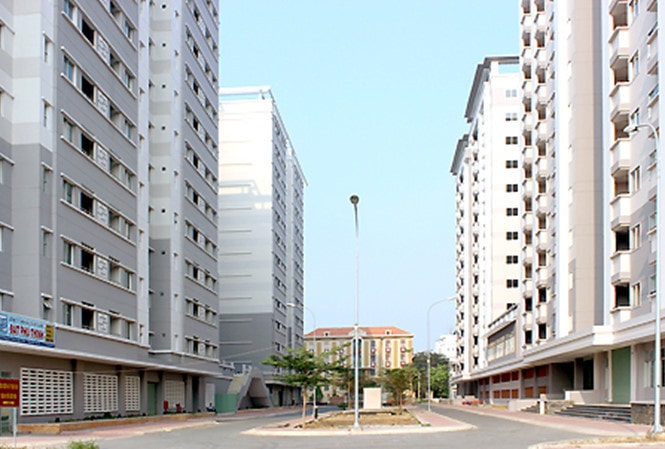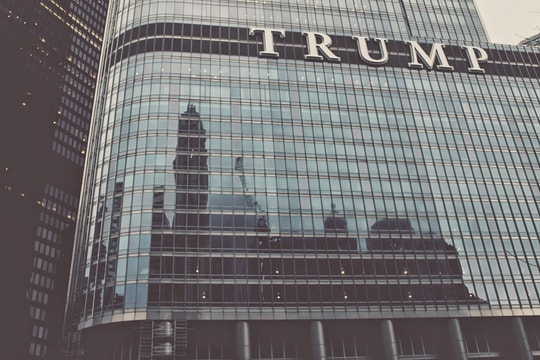Proposal not to tax second homes under 1 billion VND
In the initial stage, a moderate tax rate should be applied, suitable to the people's capacity. For those who own a second home or more, a graduated tax rate should be applied depending on the quantity and value of the property.
Regarding the opinion of the Ministry of Finance that it is necessary to study and develop a Property Tax Law to limit speculation and wasteful use of real estate, the Ho Chi Minh City Real Estate Association (HoREA) has proposed not to collect this tax on social housing, houses of level 4 or lower in rural areas; for now, not to collect this tax on resettlement housing, commercial housing with a value of less than 1 billion VND. Not to collect this tax on poor households who already have a house but are living in cramped conditions (in Ho Chi Minh City, it is below the average of 10 m2/person) and now buy a second or third house, but the total area of these small apartments does not exceed 77 m2.
In the initial stage, a moderate tax rate should be applied, suitable to the people's capacity. For those who own a second home or more, a graduated tax rate should be applied depending on the quantity and value of the property. In case of a risk of a "bubble" in the real estate market, it is recommended that the National Assembly assign the Government the authority to issue anti-speculation tax rates, levying high taxes on the transfer of houses and land immediately after purchase (which can be calculated within the first year) to help quickly stabilize the real estate market.
 |
| The Ho Chi Minh City Real Estate Association has proposed not to collect this tax on social housing and houses of level 4 or lower in rural areas; for now, this tax will not be collected on resettlement housing and commercial housing with a value of less than 1 billion VND. |
Regarding the roadmap for promulgating the Property Tax Law, HoREA proposed that the Ministry of Finance continue to implement the roadmap for promulgating this law before 2020 as previously planned. At the same time, issue a land use tax decree when the State allocates land or allows the change of land use purpose to replace the current land use fee collection policy and mechanism, to ensure the consistency and unity of the law.
It is necessary to quickly complete the issuance of "red books" for real estate properties. It is necessary to build and complete the national data information system, including the national real estate database, connecting sectors, provinces and centrally run cities and updating in real time; especially it is necessary to quickly and accurately complete the issuance of citizen identification cards, determining personal identification codes, to clearly know who owns the house and uses the land.
According to HoREA, the issuance of the Property Tax Law is only truly reasonable when simultaneously amending the policy and mechanism for collecting land use fees according to the current Land Law, which is very inadequate. Land use fees are not a tax, nor a fee, but are actually a large revenue in the local budget, a burden for businesses and home buyers, not transparent, and create a "request - give" mechanism.
Land use fees account for a large proportion of housing costs, about 10% for apartments; about 30% for townhouses; and about 50% for villas. Therefore, it would be unreasonable to issue a Property Tax Law without amending the policy and mechanism for collecting land use fees.
HoREA proposed to change the current way of calculating land use fees, it should be converted into a land use tax when the state allocates land or allows the change of land use purpose, as proposed by the Ho Chi Minh City People's Committee submitted to the Government: "In the long term, it is recommended to study the complete removal of the concept of "land use fee" and replace it with a residential land use tax with a certain tax rate, proposed at about 10% or 15% of the land price list. This is both transparent, easy to calculate and eliminates the mechanism of asking - giving. Limit the collection of land use fees that are too large for the first time, to create a sustainable, long-term source of revenue for the State".
The application of land use tax when the state allocates land or allows the change of land use purpose, in the first years, will have an impact on reducing the land use fee revenue of the provincial budget, which is an important source of local revenue, but will help businesses and consumers reduce the current burden of land use fees, helping to reduce housing prices; businesses can predict the cost of land use tax when investing in projects.
According to Thanh Nien Newspaper
| RELATED NEWS |
|---|



